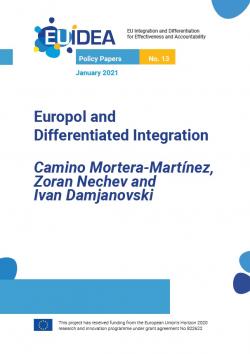Europol and Differentiated Integration
Europol has become a hub for differentiated integration. Initially a small anti-drugs unit, the EU’s police agency is now a fully-fledged body where law enforcement agencies from all around the world work together. Seen through the organisational dimension of differentiation, police cooperation through Europol has shaped differentiated integration modalities based both on the uneven participation of actors in the policy cycle and on the differentiated access to Europol’s mechanisms for exchange of information. Albeit limited, this multi-layered arrangement of police cooperation through Europol has provided the grounds for a more flexible approach towards the fight against organised crime in Europe. The various differentiated integration mechanisms at play have ultimately significantly increased transactions between law enforcement authorities in Europe and have improved cross-border cooperation in the areas within Europol’s mandate.
-
Details
Rome, IAI, January 2021, 22 p. -
In:
-
Issue
Policy Paper 13
Executive summary
Introduction
1. Europol and differentiated integration: Triggers and modalities
2. Europol’s cooperation with third countries
2.1. Schengen countries: Switzerland and Denmark
2.2 Non-Schengen, non-EU countries: The Western Balkans and the United Kingdom
2.2.1 In-depth case study 1: The Western Balkans
2.2.2 In depth case study 2: The United Kingdom
3. Looking ahead: Critical assessment and policy recommendations
References
Annex 1. List of interviews



